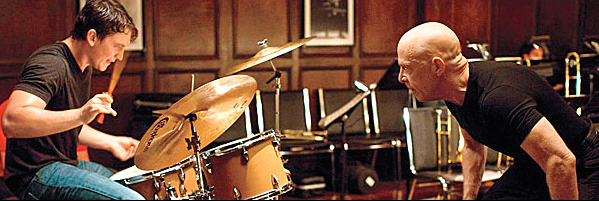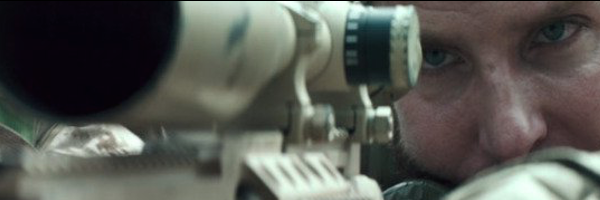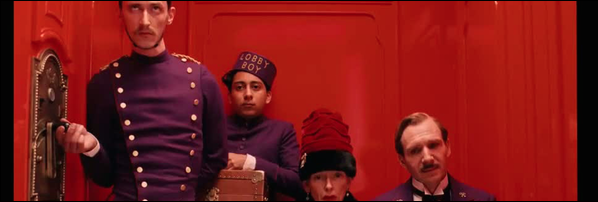
Once again, the voters of the Academy, God bless them, have nominated films you haven’t seen and generally don’t want to see for Best Picture. This won’t affect your life until your next cocktail party when someone asks you about the brilliance of “Boyhood” and you think they’re talking about your kids. Don’t be that person.
Your boss will know what a cultural Cretan you are, not having darkened a theater since “Guardians of the Galaxy.” Your husband’s twenty-something hipster assistant will sniff at you in a particularly superior manner and talk about camera angles.
You can be better. You can fake this. We are here to help.
‘Boyhood’
 “Boyhood” is basically a three hour-long version of those wedding videos that weepy dads put together for their kids’ reception. Here’s Mason (Ellar Coltrane) on Halloween. Here’s Mason standing in line for Harry Potter books. Here’s Mason being too cool and above it all for Facebook. Isn’t he adorable?
“Boyhood” is basically a three hour-long version of those wedding videos that weepy dads put together for their kids’ reception. Here’s Mason (Ellar Coltrane) on Halloween. Here’s Mason standing in line for Harry Potter books. Here’s Mason being too cool and above it all for Facebook. Isn’t he adorable?
This is why weddings have open bars.
There is no plot in the film, unless the plot is “boy grows bigger every year.” It’s long and boring, unless you’re a white male who grew up mildly disaffected in the 1990s. Eighty-seven percent of current movie critics are white males who grew up mildly disaffected in the 1990s.
It will win the Oscar.
You must never admit you haven’t watched it or have no desire to watch it. You must always speak of it in glowing terms. Happily, since there’s not much to say about the movie, you can choose any adjective you like and it will fit. Film criticism of “Boyhood” is like a game of Mad Libs where all the words are superlative. We’ve suggested some below.
Wrong: Why would I want to spend three hours of my life watching a nonstory about a white male who grew up mildly disaffected in the 1990s?
Right: Wow. “Boyhood” is so (blisteringly/lyrically/fantastically) (kaleidoscopic/lyrical/dreamlike) and (daringly/courageously/conspicuously) (non-linear/lyrical/enigmatic). It’s clearly the masterpiece of our time.
‘Birdman’

“Birdman” is a movie of the (Hollywood) people, by the (Hollywood) people, for the (Hollywood) people. It stars Michael Keaton, a former superhero actor whose glory has faded, as Riggan, a former superhero actor whose glory has very much faded. It’s super artsy (Oooh, one extended shot, look at that!) and chock-full of themes of fame and art. Seriously, the film uses a wayward wife who no longer loves her husband as a metaphor for the audience who used to idolize a person who was famous but is now no longer really famous, only sort of semi-famous.
Repeatedly.
Do you struggle with issues of fading fame, self-worth as expressed through ticket sales, and a legacy in which your lucrative role overshadows your less-popular art? To the point of suicide?
No, you say? Then you’ll be bored to tears by “Birdman.”
One must never say this at cocktail parties, of course. Luckily, you can escape having to talk about the movie by diving into its deep existential crisis themes.
Wrong: “Birdman” strikes me as merely an extended mass therapy session for Los Angeles.
Right: When you get down to it, do any of us have any true impact on the world around us? Really makes you think.
‘Whiplash’

“Whiplash,” starring Miles Teller and J.K. Simmons, is another film about art, obsession, music, obsession with music, and scary teachers. Like last year’s “Inside Llewyn Davis” or 2010’s “Black Swan,” it is all about the grief artists (in this case an aspiring jazz drummer) go to perfect or create their art and the mentors who drive them.
It’s no surprise the creative class loves it because they love to remind themselves how they suffer as compared to ordinary people. Like, say, the guy who restrings fallen power lines during ice storms or the inner-city mom who buses 45 minutes every day to take her kid to a good charter school. Those people just don’t get suffering.
You must never compare this type of mentoring relationship film to movies you actually like and that are also about mentors, specifically a kind of mentor called a football coaches.
Wrong: I feel like I saw this movie before but the student wore pads and a helmet and the teacher was gruff coach, except he ended up being nice underneath and this guy is just mean.
Right: Being an artist is only one step away from torture. If only we supported them more. We should fully fund NPR.
‘Selma’

The main impact, so far, of the Martin Luther King Jr. biopic “Selma” is that suddenly every American has an honorary PhD in Civil Rights History with an emphasis on the presidency of Lyndon B. Johnson. If there’s anything black and white Americans have in common, it’s the freedom—nay, the right—to opine forcefully on subjects of which we were blissfully unaware ten minutes before. It’s a shame because the film is excellent, nuanced, and doesn’t fit into any set talking points.
You must never express any nuance about this film at cocktail parties. There are only two tracks to take and you must adhere to your side despite all logic or reason and to a degree that would make Michael Moore blush.
Wrong: With its fine acting, great story, and fantastic direction, “Selma” is a chance to come together over shared history, find healing together, and look to the future of America.
Right:
a) Lyndon B. Johnson was wronged and that only goes to show that African-Americans today are only interested in bending truth to fit their agenda.
b) Ava DuVernay should have been nominated as Best Director and David Oyelowo should have been nominated for Best Actor, and it only goes to show that the black man or woman gets no justice in America today.
Bonus points if you punctuate your point by setting something on fire, as MLK’s memory deserves.
‘The Theory of Everything’

This closeup of the marriage between Stephen Hawking (Eddie Redmayne) and his wife Jane (Felicity Jones) is an amazingly acted and beautifully told story. Furthermore, it has a powerful message: even if a man’s body is withered, even if his frame is confined to a wheelchair, and even his voice taken away, it does not rob him of his ability to rise above his disability and be a complete turd to his wife.
I mean, hello? Does nobody notice that he refuses to let her get help with his demanding physical needs, or even to verbally admit they’re not a normal family, forces her to wait on him hand and foot, to care for their children alone, drives her into the arms of another man whom she then sacrifices for her marriage, and then after all that, ditches her for another woman?
Never let it be said disability held Stephen Hawking back.
All eyes are on Eddie Redmayne, who takes his impossibly pretty body and adorable face and somehow distracts us from how beautiful he is by twisting his godlike body into a wheelchair. As the film goes on, he has less and less to work with. The legs go, then the arms, finally the voice. Eventually, his acting comes down entirely to his cheeks. They go up, they go down, they crinkle his lovely eyes. They dance like a sugar plum fairy. There is an entire universe in his cheeks. If there were any justice in the world, his cheeks would get an acting award.
You must never speak of your obsession with Redmayne’s cheeks. That won’t do for cocktail parties.
Wrong: Wow. Did you see his cheeks? I mean, did you see them? I see them in my sleep. Please help me.
Right: Wow. Redmayne really used everything available to him to create a character that shone despite his physical limitations.
‘The Imitation Game’

Like “The Theory of Everything,” “The Imitation Game” has everything going for it, Oscar-wise: It’s an obscure, depressing story, it has an actor (Benedict Cumberbatch) you enjoy in mainstream roles in a decidedly not mainstream role, and the main character is a weirdo who you’re not sure you’d like if you met in real life.
Oscar voters eat that stuff up. Audiences tend not to. But you must not admit you have no desire to see this movie either. The cocktail party would tsk-tsk at that.
Wrong: Who is Alan Turing, again?
Right: Benedict Cumberbatch was brilliant, absolutely brilliant. And brave! Brave also! Also wonderful. So brilliantly bravely wonderful! He absolutely became Alan Turing, whoever Alan Turing is.
‘The Grand Budapest Hotel’
Every Wes Anderson film has basically the same components: Intricate sets and costumes expressing a high level of what scientists call “twee,” innocent-seeming nostalgia masking some frankly disturbing content, and Bill Murray. This film is no different.
You must never admit that you find the idea of the film exhausting, that you feel vaguely guilty because you think you should be having a better time than you are, or that you tried to watch it but fell asleep. Luckily, there’s Rotten Tomatoes to help.
Wrong: Doesn’t all that pastel and oddly cheerful yet somber activity make you want to crawl under the covers and not come out until the next “Transformers?”
Right: I found it typically stylish but deceptively thoughtful. Furthermore, the ornate visual environments explore deeply emotional ideas. (h/t Rotten Tomatoes)
‘American Sniper’

“American Sniper,” which has been dominating the box office after a limited opening to qualify for Oscars, is the one movie nominated for Best Picture that has a chance of actually being seen by the majority of the movie-going public (as opposed to by a majority of the movie-making public). About Iraq War sniper Chris Kyle, the film respects both the war he fought and the red-state Texas culture from which he came.
You must not admit that you like red-state America or that you agree with the ethos of the film. You must treat this unusual tinseltown foray into red-state America much as you would a rare safari or a trip to the zoo.
Wrong: This film was exciting and uplifting. It inspired me and made me appreciate our armed forces. Plus, it kicked serious heiny!
Also Wrong: Looks like Clint Eastwood was right when he talked to that chair, but he’s not talking to chairs anymore, he’s making great movies, amiright? Hahahaha!
Very, Very Wrong: I think Chris Kyle was a hero and agree with him that terrorists and thugs are bad and need to be stopped, by killing them if necessary, and I appreciate a film that unapologetically makes that point.
Right: Bradley Cooper did a fantastic job of becoming that strange, strange character. I, myself, have never met a “rodeo bronco rider” or someone who enjoys shooting “rifles,” or a “soldier,” but I was impressed by the work Cooper did in that role. He must have really done a lot of research into the character. How do you think he managed without Kobacha soup and buckwheat salad while researching in “Texas?”










